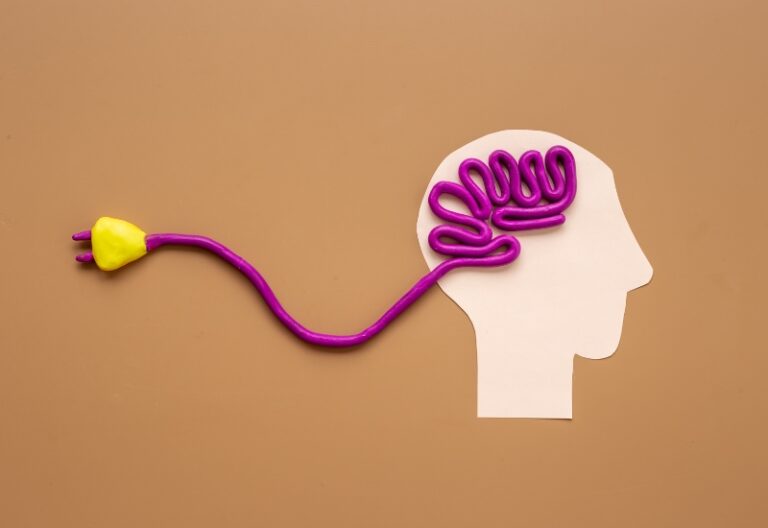Sleep regulates and restores many functions of the body, such as learning, memory, and immune function. It also affects mood and organs like the brain, heart, and lungs. Insufficient sleep can negatively impact various mental and physical health issues, notably causing insomnia-related headaches.
1. Why Does Insomnia Cause Severe Headaches?
Recent studies have demonstrated a connection between sleep-related issues and headaches, including migraines, tension headaches, and insomnia-related headaches. Insomnia often leads to morning headaches, which can decrease work and study performance. In addition to increasing the risk of migraines, lack of sleep has been shown to heighten the severity and frequency of these headaches.
Insomnia occurs when a person does not get enough sleep. Sleep deprivation is linked to decreased performance at work, reduced concentration, mood changes, memory impairment, excessive daytime sleepiness, and impaired decision-making abilities.
Getting enough sleep is essential for maintaining health. During sleep, the body self-repairs, allowing the brain and body to function optimally upon waking.
The reason insomnia causes headaches is related to brain function. The hypothalamus regulates sleep and wakefulness, and it also contains neurons responsible for pain regulation. The hypothalamus houses the suprachiasmatic nucleus (SCN), which receives signals from the eyes and helps synchronize sleep behavior with the light-dark cycle. A damaged SCN can lead to insomnia and disrupt the body’s sleep-wake cycle.
The pineal gland is another critical part of the brain associated with sleep. It produces melatonin, a hormone that facilitates sleep as the day-night cycle changes. Low melatonin levels are linked to tension headaches and may increase the risk of waking up during the night due to headaches, contributing to insomnia-related headaches.
Recent studies have also found that not only can insomnia lead to headaches, but excessive sleep can also trigger migraines. While quality sleep can alleviate headache symptoms, oversleeping may also result in headaches. The term “weekend migraine” is often used to describe migraines occurring in those who “sleep in” on weekends to compensate for sleep lost during the week.
The relationship between insomnia and migraines is bidirectional. This means that sleep disorders can cause migraines, but migraines can also negatively impact sleep. Migraines may lead to fatigue and excessive sleepiness, potentially disrupting the sleep-wake cycle.
In 2011, researchers from Missouri State University published a study showing that insomnia can cause headaches, specifically noting that a lack of REM sleep (rapid eye movement) is associated with more severe headaches. REM sleep occurs in cycles lasting 90 to 120 minutes throughout the night, characterized by vivid dreams, body movement, faster breathing, and increased heart rate. The study found that insufficient REM sleep increases the production of proteins in the body that contribute to chronic pain, including migraines.

2. Ways to Relieve Headaches from Insomnia
If you experience headaches due to insomnia or stress, you can apply several treatment methods to reduce the duration and severity of these headaches. Some effective medications include:
- Pain relievers: Aspirin (Bufferin), acetaminophen (Tylenol), ibuprofen (Advil), and naproxen (Aleve) can help alleviate mild headaches from insomnia.
- Indomethacin: This medication is effective in reducing headaches caused by insomnia.
- Triptans: These block pain pathways in the brain by binding to serotonin receptors, reducing blood vessel swelling. Available in prescription pills, nasal sprays, and injections, Treximet—a combination of triptan and naproxen—is particularly effective for many people.
- Ergot: Containing ergotamine, sometimes combined with caffeine, this medication reduces headaches by constricting blood vessels. It is most effective when taken immediately after symptoms begin, especially for migraines lasting over 48 hours.
- Antinausea medications: Such as Metoclopramide (Reglan), Chlorpromazine (Thorazine), and Prochlorperazine (Compazine).
- Opioids: Including those with addictive components like codeine, are used for patients who cannot take triptans or ergots. However, these carry a risk of addiction and are not recommended for long-term use.
- Glucocorticoids: Such as prednisone and dexamethasone, can help alleviate headaches.
Always consult a healthcare professional before starting any treatment.
The Relationship Between Sleep and Migraines
The relationship between sleep and migraines is complex. Both insufficient and excessive sleep are linked to migraines and other headache disorders. One of the best ways to reduce headaches caused by insomnia is to improve sleep quality and ensure adequate rest. Health experts recommend that adults aim for at least seven hours of sleep each night for optimal health. Practicing good sleep hygiene is essential for maintaining restful sleep. Here are some ways to establish healthy sleep habits:
- Stick to a sleep schedule: Try to go to bed and wake up at the same time every day, including weekends. A consistent sleep routine helps prevent both insufficient and excessive sleep, which can trigger migraines.
- Limit stimulants before bedtime: Alcohol, nicotine, and caffeine can negatively affect sleep quality and stability.
- Relax before bed: Spend time unwinding before sleep by engaging in relaxing activities like meditation, reading, or listening to music. Ensure your bedroom is kept cool and comfortable.
- Turn off the lights: In addition to overhead lighting, the light from phones, tablets, TVs, and other electronic devices can disrupt your circadian rhythm and contribute to insomnia and headaches. It’s best to turn off these devices before bed and limit their use while in bed.

3. Tips for Managing Headaches Due to Insomnia
In addition to the methods for reducing headaches from insomnia mentioned earlier, here are some additional tips for managing headaches and reducing insomnia at home:
- Exercise regularly: Engaging in regular physical activity can promote better sleep. However, avoid exercising too close to bedtime, as it may disrupt your sleep. Aim to exercise at least three hours before sleeping.
- Have a light snack at night: A small evening snack can help prevent indigestion and excessive energy levels that might lead to discomfort and insomnia.
- Go to bed and wake up at the same time each day: Maintaining a consistent sleep schedule can help regulate your body’s internal clock, allowing you to wake up feeling more energized and refreshed.
- Ensure adequate daylight exposure: Lack of sunlight can increase fatigue and disrupt your sleep-wake cycle.
- Avoid stimulants: Refrain from consuming alcohol, nicotine, and caffeine four to six hours before bedtime, as these can keep you awake at night and interfere with sleep.
- Eliminate unnecessary devices: Remove any items that could disrupt your sleep or cause stress before bed, including electronic devices like smartphones, TVs, and computers.
- Limit fluid intake before bed: Try to reduce the amount of liquid you consume in the evening to minimize nighttime awakenings due to the need to urinate.
The article has addressed the question of why insomnia can lead to severe headaches and how to alleviate headaches caused by insomnia. As discussed, there are various reasons for the occurrence of headaches due to lack of sleep. To reduce headaches from insomnia, you can implement several sleep hygiene practices mentioned above. Additionally, if the insomnia and headaches persist for several days or worsen, it’s essential to consult a doctor for proper guidance and treatment.
Join the Club
Like this story? You’ll love our monthly newsletter.
Thank you for subscribing to the newsletter.
Oops. Something went wrong. Please try again later.







